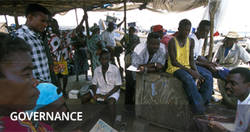
An efficient urban food policy needs a broad involvement of stakeholders, allowing horizontal (at the local level), vertical (with other territorial levels), and multisectorial coordinations. Such governance mechanisms are not easy to set.
That is why this section shares examples of participatory multi-level food governance, multi-stakeholder platforms or food councils, education and awareness raising campaigns, open data of food policies, internal organizations of local governments, partnerships with civil society, the private sector, universities and international organizations.
Related Resources
Governance and planning - Directories
i-Tree is a state-of-the-art, peer-reviewed software suite from the USDA Forest Service that provides urban and rural forestry analysis and benefits assessment tools. The i-Tree tools can help strengthen forest management and advocacy efforts by quantifying forest structure and the environmental benefits that trees provide. By understanding the local ecosystem services that...
(Global coverage)
2006 - Coll.
Governance and planning, Social and economic equity, Food loss and waste - Regulation
In dedication to food security for Belo, Horizonte, Brazil the mayor decrees that the Municipal Food Bank will collect all extra food that is safe for consumption from farmers, commercial and industrial establishments, and other venues, to be distributed to vulnerable groups in the city. Partnerships with qualified companies and...
Brazil (Latin America and the Caribbean)
2003 -
